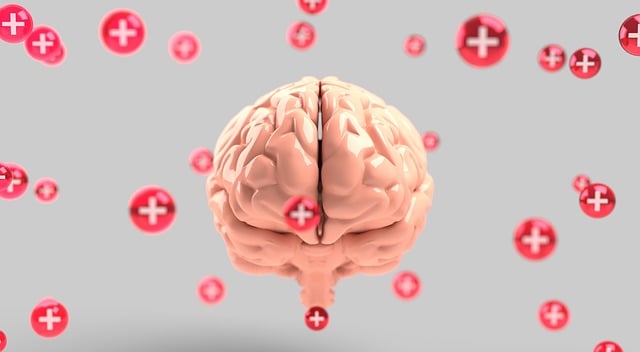Depression in adolescent teens often arises from significant life changes like starting high school or peer pressure. Recognizing signs such as persistent sadness, appetite and sleep changes, fatigue, and concentration issues is vital. Early intervention through professional therapy, including Cognitive Behavioral Therapy (CBT) and Interpersonal Psychotherapy (IPT), empowers teens with tools for managing stress and emotional difficulties during transitions. Therapy enhances resilience, self-awareness, and positive mindsets, using techniques like mindfulness meditation and culturally sensitive support to navigate life changes effectively.
Depression among adolescent teens is a growing concern, often stemming from significant life transitions. This article explores evidence-based strategies to prevent and manage this pervasive issue. We delve into recognizing depression in teens, understanding major life transitions as triggers, and providing effective therapy approaches tailored for this age group. Additionally, we highlight the importance of building resilience to navigate challenges and promote mental well-being during pivotal periods. By addressing these key aspects, we aim to empower parents and caregivers with tools to support adolescent teens through life’s ups and downs.
- Recognizing Depression in Adolescent Teens: Understanding Major Life Transitions
- Evidence-Based Therapy Approaches for Effective Depression Prevention
- Building Resilience: Strategies to Navigate Life Changes and Maintain Mental Well-being
Recognizing Depression in Adolescent Teens: Understanding Major Life Transitions

Depression among adolescent teens is often linked to significant life changes and transitions, making it crucial for parents, educators, and healthcare providers to understand these shifts. Major life transitions, such as starting high school, experiencing peer pressure, or dealing with academic expectations, can significantly impact a teen’s mental health. These transitional periods can cause stress, anxiety, and even depression if not managed effectively. Recognizing the signs of depression in adolescents is essential, especially when they are going through major life changes. Common symptoms include persistent sadness, loss of interest in activities once enjoyed, changes in appetite and sleep patterns, fatigue, difficulty concentrating, and feelings of worthlessness or guilt.
Early intervention is vital, and seeking professional therapy for adolescent teens can be a game-changer. A qualified therapist can provide the necessary tools to navigate these transitions healthily. This may include self-esteem improvement exercises, mental wellness journaling as a guidance technique, or even community outreach program implementations to foster social connections and support networks. By addressing depression proactively, especially during formative years, adolescents can develop resilience and learn healthy coping mechanisms that will benefit them throughout their lives.
Evidence-Based Therapy Approaches for Effective Depression Prevention

Depression prevention strategies among adolescent teens often involve evidence-based therapy approaches that have proven effective in managing and mitigating depressive symptoms. Cognitive Behavioral Therapy (CBT), for instance, is a widely recognized method that focuses on identifying and changing negative thought patterns and behaviors contributing to depression. By teaching teens to challenge distorted thinking and adopt healthier coping mechanisms, CBT empowers them to manage stress and emotional difficulties more effectively.
Additionally, Interpersonal Psychotherapy (IPT) has gained prominence as another powerful therapy for adolescent teens undergoing major life transitions. IPT addresses the impact of interpersonal relationships on mental wellness, helping individuals navigate changes, resolve conflicts, and build stronger support networks. This approach not only enhances burnout prevention but also fosters public awareness campaigns development centered around recognizing and supporting teen mental health.
Building Resilience: Strategies to Navigate Life Changes and Maintain Mental Well-being

Navigating life changes is a significant aspect of adolescent development, and while some transitions can be exciting, others may trigger feelings of depression in vulnerable teens. Building resilience is a crucial strategy to prepare young individuals for managing major life transitions healthily. This involves developing coping mechanisms that enable them to adapt and grow through challenging experiences. One effective approach is therapy, which equips teens with tools to process emotions, enhance self-awareness, and build a positive mindset.
Mindfulness meditation, as part of a holistic Mental Wellness Podcast Series Production, can teach adolescents how to stay present during stressful situations. This ancient practice encourages acceptance and awareness, fostering a sense of calm that can buffer the impact of life changes. Additionally, Healthcare Provider Cultural Competency Training plays a vital role in ensuring that teens receive culturally sensitive support tailored to their unique backgrounds. By integrating these strategies, teens are better equipped to handle major life transitions, thereby reducing the risk of depression during pivotal periods of growth and change.
Depression prevention among adolescent teens involves a multi-faceted approach, particularly focusing on understanding major life transitions and implementing evidence-based therapy strategies. By recognizing the signs of depression early and fostering resilience through effective coping mechanisms, young individuals can better navigate life changes. Engaging in therapy tailored to their needs, such as cognitive behavioral therapy (CBT), can provide valuable tools for managing mental health. Ultimately, addressing depression head-on during adolescence paves the way for a healthier and more resilient future.









